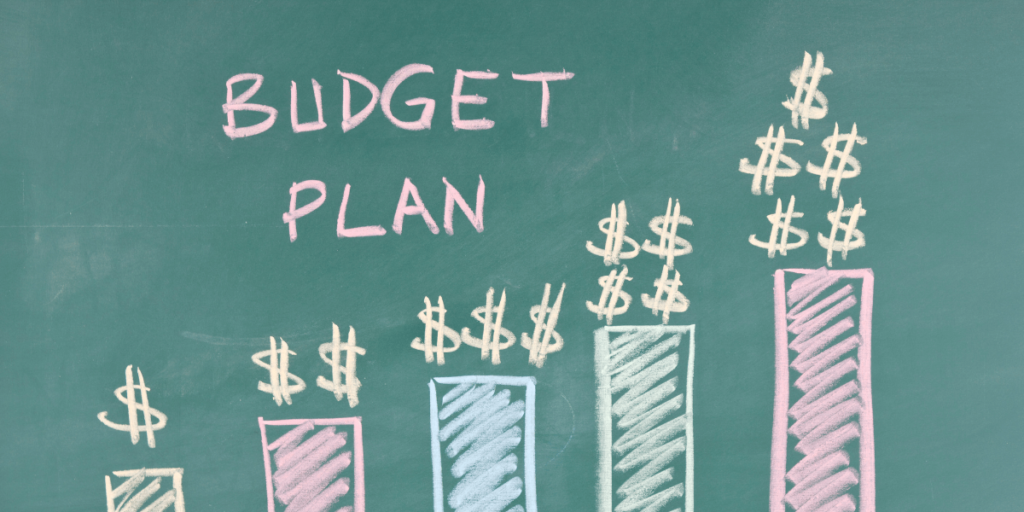Introduction to Budgeting
Budgeting is an essential skill that allows individuals to manage their personal finances effectively. Whether you are earning a fixed salary or have irregular income, creating a budget helps you take charge of your financial life. It provides a roadmap for how you will spend and save your money, ensuring you meet both your short-term needs and long-term financial goals. Many people shy away from budgeting because they believe it is too restrictive or complex. However, a well-planned budget can bring peace of mind and financial stability.
Contrary to popular belief, budgeting is not about penny-pinching or eliminating all fun from your life. It’s about making intentional choices with your money to align your spending with your values and priorities. A good budget allows for flexibility and personal enjoyment while maintaining financial responsibility. It empowers you to make informed decisions, avoid unexpected financial stress, and actively work towards your dreams.
The importance of budgeting has grown in today’s society where consumer debts and financial obligations are increasingly prevalent. Rising living costs, student loans, credit card debts, and unexpected expenses can all strain your finances if you’re not adequately prepared. Budgeting offers a proactive approach to managing these challenges, helping you avoid the pitfalls of living paycheck to paycheck and building a solid financial foundation.
In this comprehensive guide, we will delve into the various aspects of creating a budget that works for you. We’ll start with understanding why budgeting is crucial, then move on to assess your current financial situation, set clear financial goals, and track your income and expenses. You’ll learn how to create a budget plan, prioritize your expenditures, and make necessary adjustments. We will also provide practical tips on staying committed to your budget and highlight common mistakes to avoid. Let’s embark on this journey to financial well-being.
Why Budgeting is Important
Budgeting holds a pivotal role in personal finance for several compelling reasons. Firstly, it provides clarity and control over your finances. By itemizing your income and expenses, you have a clear picture of where your money is going. This awareness helps you identify spending patterns and find opportunities for saving. Knowing your financial standing allows you to make informed decisions and avoid unnecessary debt.
Another crucial benefit of budgeting is enhancing financial discipline. With a budget, you commit to spending within your means and saving for future needs. It discourages impulsive purchases and encourages mindful spending. This discipline is particularly valuable when dealing with financial goals like buying a house, paying for education, or saving for retirement. With a budget, you can allocate funds effectively towards these goals without jeopardizing your financial stability.
Budgeting also acts as a financial safety net. It involves setting aside funds in an emergency savings account to cover unexpected expenses such as medical bills, car repairs, or job loss. This preparedness reduces financial stress in emergencies and prevents the need for high-interest borrowing. Budgeting thus fosters financial resilience, allowing you to navigate life’s uncertainties with confidence.
Assessing Your Current Financial Situation
Before creating a budget, you need to understand your current financial situation thoroughly. This assessment involves gathering all relevant financial information, including your income, expenses, debts, and assets. Start by listing all your sources of income, such as your salary, freelance work, rental income, and investments.
Next, track your expenses for at least a month to gain insight into your spending habits. Categorize your expenses into essential (e.g., rent, utilities, groceries) and non-essential (e.g., dining out, entertainment). This will help you identify areas where you can cut back if necessary. Include periodic expenses such as insurance premiums, vehicle registration, and holiday spending.
A crucial part of this assessment is calculating your net worth, which is the difference between your assets and liabilities. List all your assets, including bank accounts, investments, real estate, and valuable personal property. Then, list your liabilities, such as mortgage, student loans, credit card debt, and any other outstanding debts. This calculation gives you a snapshot of your financial health and areas needing attention.
| Financial Information | Details |
|---|---|
| Income | Salary, freelance work, etc. |
| Expenses | Rent, utilities, groceries, etc. |
| Assets | Bank accounts, investments |
| Liabilities | Mortgage, student loans, etc. |
| Net Worth | Assets – Liabilities |
Setting Clear Financial Goals
Setting clear financial goals is a fundamental step in creating a budget that works for you. These goals provide purpose and direction for your financial plan. Goals can be short-term, such as saving for a vacation or emergency fund, medium-term like buying a car, or long-term like paying off a mortgage or saving for retirement.
Begin by identifying and prioritizing your goals based on their importance and timelines. Use the SMART criteria to make your goals Specific, Measurable, Achievable, Relevant, and Time-bound. For example, a specific and measurable goal might be saving $5,000 for a down payment on a house within two years.
Next, break down your goals into manageable steps. If your goal is to save $5,000 in two years, you need to save approximately $208 per month. Having a clear amount to aim for each month makes your goal more attainable and less overwhelming.
Setting financial goals also involves aligning them with your values and lifestyle. Consider what is most important to you—whether it’s financial independence, security, or experiences. This alignment ensures that your budget reflects your true priorities, making it easier to stick to.
Tracking Income and Expenses
Tracking your income and expenses is a continuous process that requires careful attention to detail. It involves recording every financial transaction to ensure accuracy in your budgeting. This can be done manually through a ledger or digitally using budgeting apps and software designed for money management.
Start by documenting all sources of income, including your primary job, side hustles, and any passive income streams. Don’t forget to account for variable income, such as bonuses or freelance earnings, which might fluctuate monthly. Tracking income comprehensively helps in estimating your average monthly earnings.
Expenses should be tracked diligently as well. Categorize your spending into fixed expenses like rent or mortgage payments and variable expenses like groceries and entertainment.
Creating a Budget Plan
Creating a budget plan involves allocating your income towards various expense categories and savings goals. Once you have a clear understanding of your income and expenses, and you’ve set your financial goals, you can draft a plan that balances spending, saving, and investing.
Begin by listing your fixed expenses, as these are non-negotiable obligations. Then allocate funds for your variable expenses, ensuring you leave room for occasional expenditures. It’s also essential to allocate money toward your financial goals and savings. Many budget plans use the 50/30/20 rule as a guideline: 50% of your income goes to needs, 30% to wants, and 20% to savings and debt repayment.
Review your budget plan regularly to ensure it reflects your current financial situation and goals. Adjust your allocations as needed, especially when you experience life changes like a new job, a raise, or unexpected expenses.
| Budget Category | Allocation |
|---|---|
| Needs (50%) | Rent, groceries, etc. |
| Wants (30%) | Entertainment, dining |
| Savings & Debt (20%) | Emergency fund, loans |
Prioritizing Expenses
Not all expenses are created equal, and part of successful budgeting involves prioritizing where your money goes. Begin by distinguishing between your needs and wants. Needs are essential for survival and well-being, like housing, utilities, food, healthcare, and transportation. Wants are non-essential items that enhance your quality of life but are not necessary for your day-to-day living.
Within your needs, further prioritize according to urgency and necessity. For example, rent and utilities are top priorities because they’re essential for shelter and basic comfort. Groceries, healthcare, and transportation follow closely as they are vital for sustenance and mobility.
Having a prioritized list helps in making informed decisions, especially when funds are tight. For instance, if you have a financial shortfall, you’ll know which expenses can be postponed or reduced without compromising your well-being.
Adjusting and Managing Your Budget
Creating a budget is just the beginning; managing and adjusting it as needed is equally important. Life is unpredictable, and your financial situation can change due to various factors such as job loss, medical emergencies, or changes in income. Regularly review your budget to ensure it aligns with your current circumstances.
Make adjustments to your budget categories based on your updated financial situation. For example, if you receive a pay raise, allocate a portion of the increased income towards savings or debt repayment. Conversely, if you face an unexpected expense, find areas where you can cut back temporarily to cover the cost without disrupting your financial goals.
It’s also beneficial to revisit your financial goals periodically. As you achieve certain milestones, set new goals to maintain your financial momentum. Budgeting is a dynamic process that evolves with your life, and being flexible with your plan ensures long-term success.
Tips for Sticking to Your Budget
Sticking to your budget requires discipline and consistency. Here are some practical tips to help you stay on track:
- Automate Savings: Set up automatic transfers to your savings accounts to ensure you consistently save a portion of your income without having to think about it.
- Use Cash Envelopes: For variable expenses, using cash envelopes can help you limit spending to the budgeted amount, reducing the temptation to overspend.
- Track Spending: Regularly track your spending using apps or a spreadsheet to stay aware of your financial habits and make informed adjustments as needed.
- Set Reminders: Use calendar reminders for bill payments and financial check-ins to avoid late fees and ensure you regularly review your budget.
- Celebrate Milestones: Reward yourself for achieving financial goals to maintain motivation and make budgeting a positive experience.
Common Budgeting Mistakes to Avoid
While budgeting can significantly improve your financial health, certain pitfalls can undermine your efforts. Avoid these common budgeting mistakes:
- Being Unrealistic: Setting unattainable goals or highly restrictive budgets can lead to frustration and burnout, causing you to abandon your budget altogether.
- Ignoring Irregular Expenses: Failing to account for irregular but inevitable expenses like car maintenance or annual subscriptions can disrupt your budget. Include these in your plan by setting aside a small amount each month.
- Neglecting to Adjust: Not revisiting and adjusting your budget regularly can result in it becoming irrelevant, especially as your financial situation changes. Make periodic adjustments to keep your budget effective.
Review and Adjust Your Budget Regularly
Regular review and adjustment are crucial for maintaining an effective budget. Financial situations are dynamic and require you to adapt your budget accordingly. Schedule monthly or quarterly budget reviews to assess your progress, identify any discrepancies, and make necessary changes.
During your review, compare your actual spending with your budgeted amounts. This helps you understand if you’re overspending in certain categories or have room to allocate more funds towards your savings. Use these insights to refine your budget and improve its accuracy.
Additionally, review your financial goals during these check-ins. As you accomplish certain goals, set new ones to continue growing your financial well-being. Regular review ensures that your budget remains a living document that adapts to your financial journey.
Conclusion
Creating a budget that works for you is a transformative step towards financial security and independence. It entails understanding your current financial situation, setting clear and achievable goals, and tracking your income and expenses diligently. A well-crafted budget plan allocates funds wisely, prioritizes essential expenses, and adjusts flexibly to life’s uncertainties.
By avoiding common budgeting mistakes and implementing practical tips, you can stay committed to your budget and achieve your financial aspirations. Regular review and adjustment keep your budget relevant and effective, ensuring it evolves with your financial needs.
Remember, budgeting is not merely about restriction; it’s about empowerment. It provides you with the control and clarity needed to make intentional financial decisions that align with your values and priorities. Start your budgeting journey today and pave the way to a robust financial future.
Recap
- Introduction to Budgeting: Understand the importance and benefits of budgeting.
- Why Budgeting is Important: Gain clarity, enhance financial discipline, and prepare for emergencies.
- Assessing Your Current Financial Situation: Gather financial information and calculate net worth.
- Setting Clear Financial Goals: Define SMART goals aligned with your values.
- Tracking Income and Expenses: Record all transactions and categorize expenses.
- Creating a Budget Plan: Allocate income using guidelines like the 50/30/20 rule.
- Prioritizing Expenses: Distinguish between needs and wants and prioritize accordingly.
- Adjusting and Managing Your Budget: Regularly review and adapt your budget.
- Tips for Sticking to Your Budget: Implement strategies to stay committed.
- Common Budgeting Mistakes to Avoid: Avoid unrealistic goals, ignoring irregular expenses, and not adjusting your budget.
- Review and Adjust Your Budget Regularly: Maintain a dynamic and effective budget through periodic reviews.
Frequently Asked Questions (FAQ)
- What is the first step in creating a budget?
- The first step is to assess your current financial situation by gathering all relevant financial information, including income, expenses, debts, and assets.
- How can I track my expenses effectively?
- You can track your expenses manually in a ledger or spreadsheet, or use budgeting apps and software designed for money management.
- What is the 50/30/20 rule in budgeting?
- The 50/30/20 rule suggests allocating 50% of your income to needs, 30% to wants, and 20% to savings and debt repayment.
- How often should I review my budget?
- It’s recommended to review your budget monthly or quarterly to ensure it remains relevant and effective.
- What are some tools for budgeting?
- Some popular budgeting tools include Mint, YNAB (You Need A Budget), Personal Capital, and GoodBudget.
- How can I identify unnecessary expenses?
- Track your spending for at least a month, categorize expenses into essential and non-essential, and identify patterns where you can cut back.
- What should I do if I consistently overspend in a category?
- Analyze why you’re overspending, adjust your budget by reallocating funds, and consider setting limits or using cash envelopes to control spending.
- Why is it important to set financial goals?
- Setting financial goals provides purpose and direction for your budgeting, helping you prioritize and allocate funds effectively towards achieving your aspirations.
References
- Fisher, J. D., & Krishnan, V. (2017). “Smart Financial Decisions: How to Budget Effectively”. Financial Planning Journal.
- Smith, A. (2020). “The Art of Budgeting: Manage Your Money Wisely.” Personal Finance Today.
- Brown, C. (2019). “Financial Independence: A Guide to Building Wealth.” Wealth Management Review.



